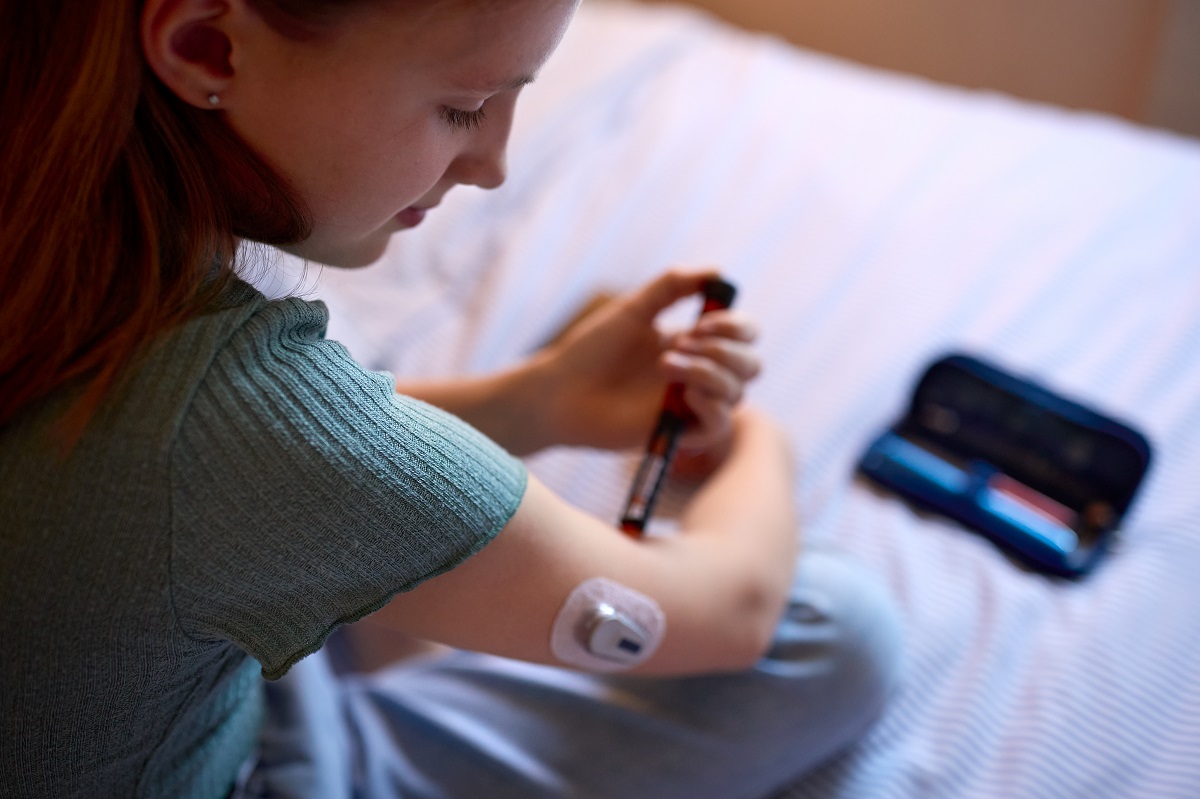A health condition in which blood sugar levels are low is called hypoglycemia. Blood sugar (glucose) is the body’s main energy source. Commonly, doctors treat this condition using diabetes medications. However, there are other different medicines that help to increase blood sugar for people without diabetes.
Low blood sugar requires treatment right away. One sign that a person has hypoglycemia is a blood sugar of 70 mg/dL (milligrams per deciliter) or 3.9 millimoles per liter (mmol/L) or lower. However, you should consult with your doctor because the numbers can be different.
This condition is usually treated by getting quickly blood sugar to normal ranges using high-sugar food, drink, or medicine. Moreover, long-term treatment needs to determine and treat the underlying cause of hypoglycemia.
Symptoms
People who experience a drop in blood sugar may notice the following symptoms. Examples include:
- Sweating
- Shakiness
- Looking pale
- Hunger
- Nausea
- Irregular or fast heartbeat
- Extreme tiredness (fatigue)
- Anxiety
- Irritability
- Dizziness
- Lightheadedness
- Difficulty concentrating
- Numbness of the tongue, cheek, or lips
Check below also some symptoms that may appear if hypoglycemia worsens:
- Loss of coordination
- Slurred speech
- Nightmares
- Vision changes (such as blurred or tunnel vision)
- Confusion
- Loss of consciousness or seizures (in severe cases)
It is recommended to seek medical care immediately if you experience any of the symptoms listed above and do not have diabetes.
Causes
This condition usually happens when glucose (blood sugar) drops too low to maintain body function steady. Although hypoglycemia can happen due to different causes, one of the most common causes of reduced glucose levels is an adverse reaction to diabetes medications.
Blood Sugar Regulation
In normal circumstances, when a person eats, the body breaks down foods into glucose (a primary source of the body’s energy). Thereafter, the pancreas releases a special hormone (insulin) that helps glucose enter cells. In case you have an increased amount of glucose it is stored in the muscles and liver (glycogen).
The pancreas no longer produces insulin if you do not eat for several hours and blood sugar starts to decrease. In any case, this endocrine system organ also produces another hormone (glucagon) that sends signals to the liver to break down stored glycogen. So, it begins to release glucose in the bloodstream, which helps to maintain a healthy level of blood sugar until you eat again.
Furthermore, the body can produce glucose on its own. It primarily occurs in the liver but can also in the kidneys. In addition, when a person fasting for long periods the body may start to break down fat stores and use them as fuel.
Causes with Diabetes
In people with type 1 diabetes, the pancreas no longer produces insulin and with type 2 diabetes it produces but not enough. Therefore, blood sugar may reach dangerous high levels and begin buildup in the bloodstream. To fix this problem, you may administer insulin or other diabetes medicines. However, people who administer an increased amount of insulin or diabetes medicines can experience a sudden drop in glucose (hypoglycemia). That’s why you should follow the doctor’s recommendations carefully if you have diabetes. In other words, take the medicines exactly as prescribed by your physician.
Causes without Diabetes
Low blood sugar in people without diabetes happens less commonly. Check below some potential causes:
- Medicines – Hypoglycemia can happen in people who take oral diabetes medicines in increased amounts. Moreover, some medicines can provoke low glucose levels in children or adults with kidney failure who take Quinine (a medicine used to treat malaria).
- Misuse of alcoholic beverages – People who drink heavily and do not eat provoke the liver to break down glycogen stored in the liver, which can cause hypoglycemia.
- Severe health conditions – There are some serious health problems that can also lead to hypoglycemia. These include kidney disease, advanced heart disease, severe infection, severe hepatitis, and cirrhosis.
- Long-term hunger – In people who follow a fasting diet can happen malnutrition which leads to hypoglycemia. It commonly happens because you are not eating and glycogen stores are used up. For instance, an eating disorder (anorexia nervosa) can lead to long-term starvation and low blood sugar over time.
- Insulin overproduction – In rare cases, a tumor (insulinoma) can occur in the pancreas that causes increased insulin production. However, there are other tumors that provoke excessive insulin release and hypoglycemia.
- Hormone deficiency – Some disorders of the adrenal gland and pituitary tumors can lead to abnormal hormone production which is responsible for regulating glucose production or metabolism. For example, children with reduced growth hormones can experience hypoglycemia.
Hypoglycemia after Eating
In normal circumstances, when a person eats the blood sugar levels increase but not always. Experts do not understand why it happens but they think that surgery could play a role. Usually, it happens when people experience surgery on the stomach which may affect its normal function but other surgeries also can provoke this problem. One of the most common surgeries linked with low blood sugar after meals is stomach bypass surgery. In such cases, physicians call this condition reactive hypoglycemia or postprandial hypoglycemia.
What Are The Possible Complications of Hypoglycemia?
If you do not receive treatment for low blood sugar you may experience seizures, coma, or even death. However, hypoglycemia can also provoke dizziness, weakness, falls, injuries, motor vehicle accidents, increased risk of dementia (in older people), and other problems.
Unawareness Hypoglycemia
Sometimes, people may experience unawareness of low blood sugar, especially if they experience recurrent episodes of hypoglycemia. It occurs because the brain and body do not make any signs and symptoms that indicate low glucose levels such as shakiness or palpitations (irregular heartbeats). In such cases, you may experience serious and life-threatening hypoglycemia.
For people with diabetes, recurrent hypoglycemia episodes, and unawareness of hypoglycemia, physicians can increase the dose of medicines or even change the treatment. Moreover, doctors may recommend blood glucose awareness training.
In addition, another way to prevent unawareness of hypoglycemia is a continuous glucose monitor (CGM). This is a special device that alerts you when the blood glucose is too low.
Undertreated Diabetes
Some people may administer a decreased insulin amount due to fear that blood sugar can drop too much. In such cases, it leads to uncontrolled diabetes and you should talk with your doctor about fear. Moreover, you should never change the medicines and dosages prescribed by the doctor because it may lead to unpleasant outcomes.
Prevention
People with Diabetes
To prevent low glucose levels it is advised to follow exactly the diabetes management plan as directed by the doctor. If you add new exercise, change something in your eating or medicine schedules, or take new medications, you should consult with your doctor first. Otherwise, your risk of hypoglycemia elevates. It is also recommended to make sure you have always a fast-acting carbohydrate (such as hard candy, glucose tablets, or juice) because it will help to prevent dangerously low blood sugar levels.
People without Diabetes
One way to prevent recurrent hypoglycemia episodes is to eat small meals but frequently. However, it is not an effective long-term strategy. Discuss with your healthcare professional to determine the underlying cause of low glucose levels.
Diagnosis
A review of your medical history and a physical examination your doctor will do before diagnosis of this condition. If you are using medicines to reduce blood sugar or insulin and continue to experience hypoglycemia symptoms, doctors may measure your blood sugar levels using a blood glucose meter. However, other tests are also possible, talk with a healthcare professional for more details.

Treatment
Hypoglycemia Treatment
It is advised to do the following things if you experience symptoms of low blood sugar. Examples include:
- Consume 15-20 grams of fast-acting carbohydrates that will help to return blood sugar levels to normal. You can do it by eating or drinking the following drinks and foods. For example glucose tablets or gel, fruit juice, regular soda, honey, or sugary candy.
- Repeat the first treatment option if the blood sugar remains low despite eating or drinking fast-acting carbohydrates. Recheck your blood sugar levels every 15 minutes until the glucose level goes above 70mg/dL (3.9 mmol/L).
- When your blood sugar returns to normal ranges, it is advised to have a snack or meal to prevent a recurrent drop in blood glucose levels and restore glycogen stores.
Treatment for Severe Hypoglycemia
If you experience a severe form of hypoglycemia you may need help from another person. For instance, if you are not able to eat you may need a glucagon injection or intravenous (IV) glucose. Generally, people with diabetes have always a glucagon kit for emergencies along with insulin.
However, if you are helping a person who is unconscious, do not give him/her food or drinks. In case there is no glucagon kit you should seek emergency medical help right away.
Underlying Condition Treatment
Recurrent hypoglycemia in patients without diabetes usually needs treatment for conditions that provoke low blood sugar levels. Check below some treatment options:
- Nutrition – Doctors may review your eating habits and food planning with a dietician. This can help to prevent and reduce the frequency of hypoglycemia.
- Medicines – If you experience low glucose levels due to a medicine, doctors may change the dose or even the medicine.
- Tumor treatment – Physicians may prescribe treatment for tumors that happen in the pancreas. It usually involves surgery to remove the tumors. Sometimes, medicines to control low glucose levels and the removal of a part of the pancreas are required.
Frequently Asked Questions
What are the primary symptoms of low blood glucose levels?
Early symptoms of hypoglycemia include:
- Lightheadedness
- Dizziness
- Irregular heartbeats
- Difficulty focusing or concentrating
- Weakness
- Lack of energy
- Shakiness
- Hunger
- Nausea
If you experience any of the previous symptoms, you should immediately contact your healthcare professional.
Can hypoglycemia happen in people without diabetes?
Rarely, people without diabetes can experience low blood sugar. It is caused commonly due to pancreas tumors, medicines, and eating habits. In such cases, you should visit a doctor to determine the underlying cause. Discuss with your doctor for more details.
What health conditions can be mistaken for hypoglycemia?
Sometimes, low glucose levels cause symptoms similar to other health conditions. These include hypotension (low blood pressure), anxiety, and hyperthyroidism (overactive thyroid gland). The most accurate method to detect hypoglycemia is to measure blood glucose levels. Ask your doctor if you have additional questions.



